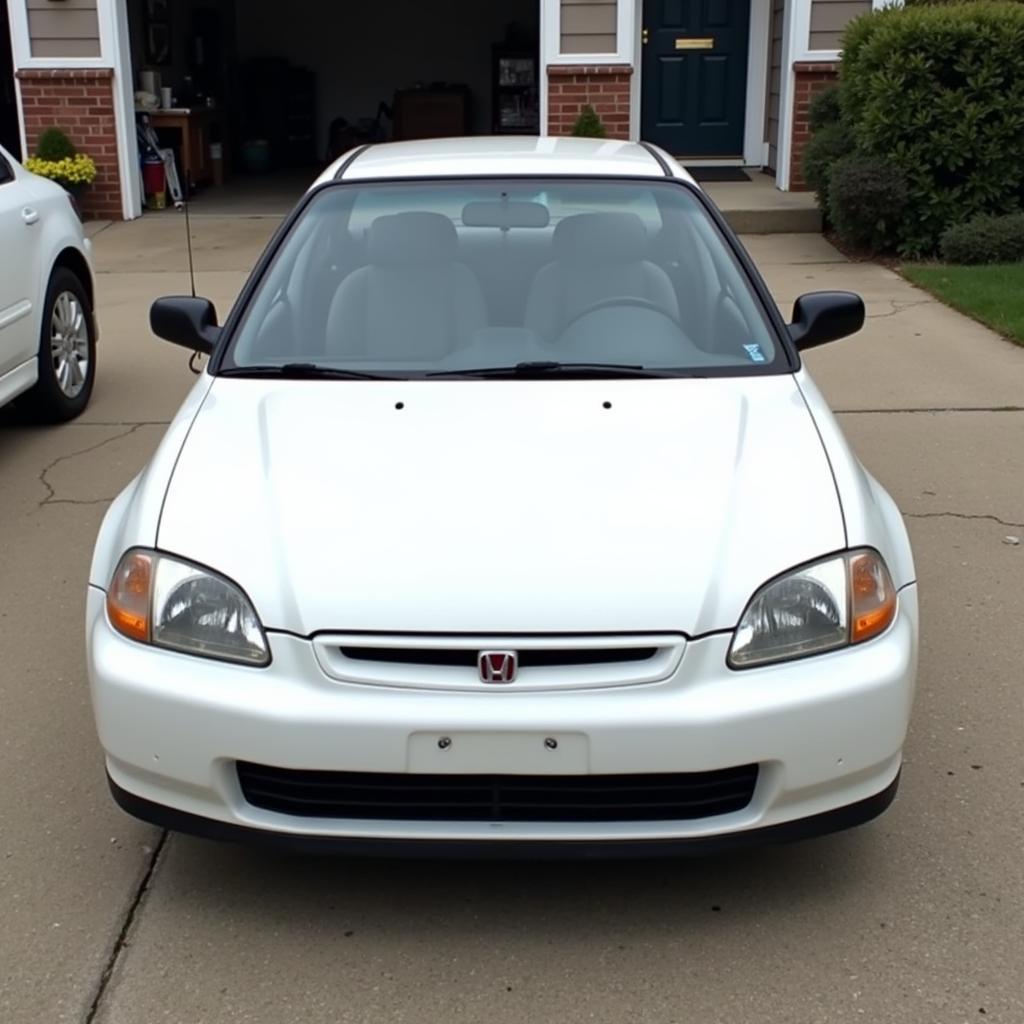The 1996 Honda Civic Hatchback straddles a significant transition in automotive technology: the shift from OBD1 to OBD2 diagnostic systems. Determining which system your 1996 Civic Hatch uses is crucial for accurate diagnostics and repairs. This article will help you identify whether your vehicle is equipped with OBD1 or OBD2, providing you with the knowledge to make informed decisions regarding your car’s maintenance.
Understanding OBD Systems: A Brief Overview
OBD, short for On-Board Diagnostics, is a standardized system that allows mechanics and car owners to access a vehicle’s engine and emissions data. This system uses a standardized connector, typically located under the driver’s side dashboard, to interface with a diagnostic tool, or OBD scanner.
OBD1, the first generation, was manufacturer-specific, leading to variations in connector types, protocols, and diagnostic procedures.
OBD2, introduced in the mid-1990s, brought standardization across vehicle manufacturers in the United States, simplifying diagnostics and repairs.
Determining if Your 1996 Civic Hatch is OBD1 or OBD2
The 1996 model year falls within the OBD2 implementation period. However, not all 1996 vehicles were immediately equipped with OBD2. Here’s how to definitively determine your 1996 Civic Hatch’s OBD system:
- Check Under the Hood: Look for an Emissions sticker under the hood. This sticker often indicates the OBD standard your vehicle complies with.
- Inspect the Diagnostic Connector:
- OBD1: Connectors varied by manufacturer. In Honda vehicles of this era, you might find a two-pin connector.
- OBD2: A 16-pin trapezoidal connector, typically located under the driver’s side dashboard, signifies an OBD2 system.
- Consult Your Owner’s Manual: Your Civic’s manual may provide information about the OBD system used.
In most cases, 1996 Honda Civic Hatchback models manufactured for the US market are equipped with the OBD2 system.
Implications of Having OBD1 or OBD2
Knowing your Civic’s OBD system is vital for:
- Purchasing the Correct Scanner: OBD1 and OBD2 scanners are not interchangeable. Using the wrong scanner will prevent you from accessing your car’s diagnostic information.
- Troubleshooting Issues: Different diagnostic procedures and codes apply to OBD1 and OBD2 systems.
- Emissions Testing: OBD2 compliance is mandatory for emissions testing in many regions.
Expert Insights:
“Understanding your vehicle’s OBD system empowers you to take control of its maintenance,” says John Miller, a seasoned automotive technician with over 20 years of experience. “Knowing whether it’s OBD1 or OBD2 ensures you use the correct tools and procedures for accurate diagnostics.”
Conclusion
While the 1996 Honda Civic Hatchback marked a transition year for OBD systems, most models sold in the US were equipped with OBD2. By following the steps outlined in this article, you can confidently determine your vehicle’s OBD system. This knowledge is essential for choosing the correct diagnostic tools, understanding trouble codes, and ensuring your Civic remains in peak condition.
FAQ
- Can I use an OBD2 scanner on my 1996 Civic Hatch if it has an OBD1 system? No, OBD1 and OBD2 scanners are not interchangeable due to differences in connector types and communication protocols.
- Is my 1996 Civic Hatch subject to OBD2 emissions testing? If your 1996 Civic Hatch was manufactured for the US market, it’s highly likely that it’s subject to OBD2 emissions testing. However, regulations can vary by state, so it’s best to check with your local authorities.
- Where can I get my 1996 Civic Hatch diagnosed if I’m unsure about its OBD system? You can visit a qualified mechanic specializing in Honda vehicles or consult with your local dealership.
Need help with your 1996 Civic Hatch or have more questions about OBD systems? Contact our team of automotive experts 24/7 via WhatsApp: +1(641)206-8880, or Email: [email protected]. We’re here to assist you!

